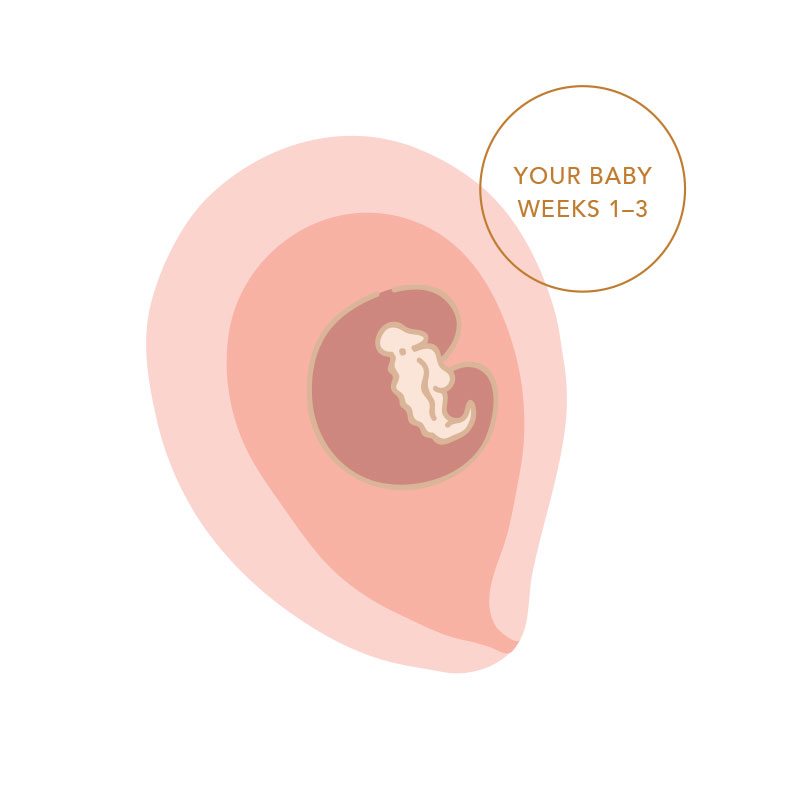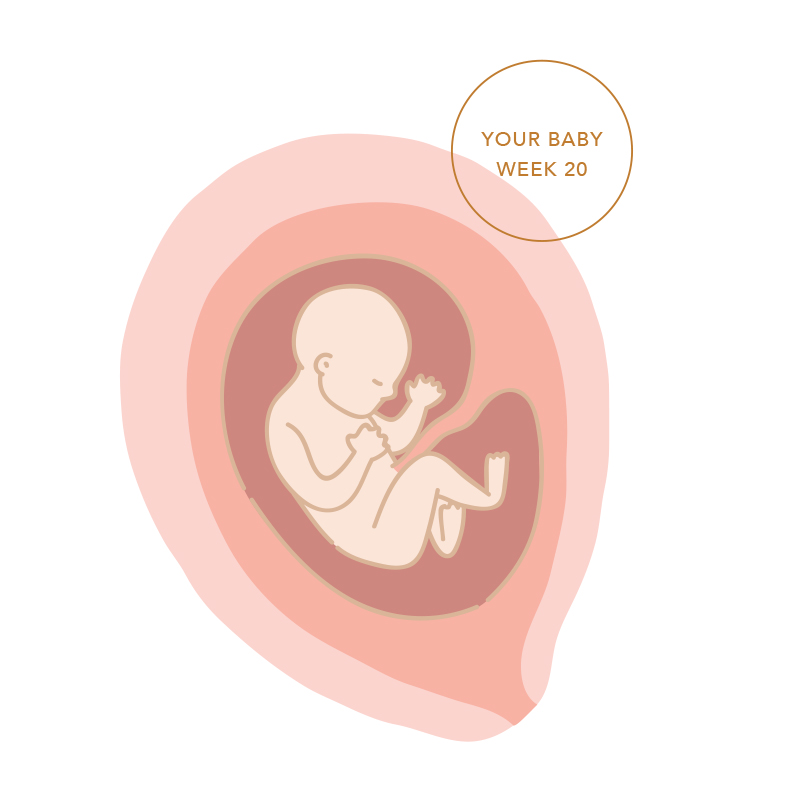Weeks One – Three

Congratulations, you’re pregnant!
When it comes to the timeline of your pregnancy the first thing to note is that it is divided into three trimesters. According to the New Zealand College of Midwives, the first trimester is weeks zero to the end of week 13, the second trimester is weeks 14 to the end of week 27, and the third trimester is weeks 28 to week 40.
At first, it can be confusing to work out how far along you are but your pregnancy is counted from the first day of your last menstrual period. On average, conception occurs two weeks after your last period. Therefore, people who have a standard 28- day cycle are already considered four weeks pregnant by the time their next period is due.
A full-term pregnancy is 40 weeks. Depending on when you deliver, you may be pregnant for a shorter or longer time.
Let’s go through what you can expect from your pregnancy in terms of growth, development, and symptoms over the coming 40 weeks or so. It’s important to remember that every person and baby is different, so if your experience doesn’t match these timings exactly, that’s okay; this is just a general guide to give you an idea of how pregnancies commonly progress.
First up, let’s look at weeks 1-3:
Around week three is typically the ovulation phase of your cycle – this is where the magic of conception happens. The sex of your baby is already determined once the sperm fertilises the egg, and this now fertilised egg, which is soon to be your baby, is rapidly dividing into many cells.
If you’ve conceived naturally, the fertilised egg remains in your fallopian tube for around one to three days before it begins to travel to implant in your uterus. If you have had medically assisted fertilisation such as intrauterine insemination (IUI), the semen will have been inserted into your uterus to assist this fertilisation process.
Some people have spotting or very light bleeding when implantation happens which is normal. This implantation typically occurs six to seven days after fertilisation. If you have any concerns about bleeding, contact your GP or LMC.



